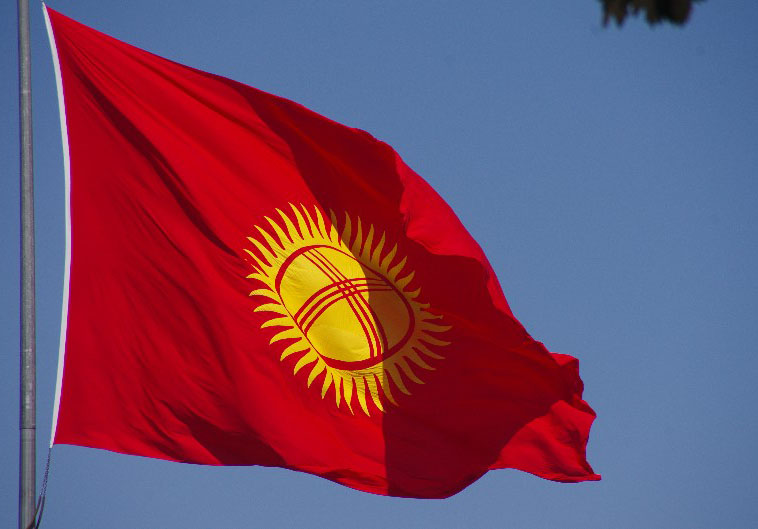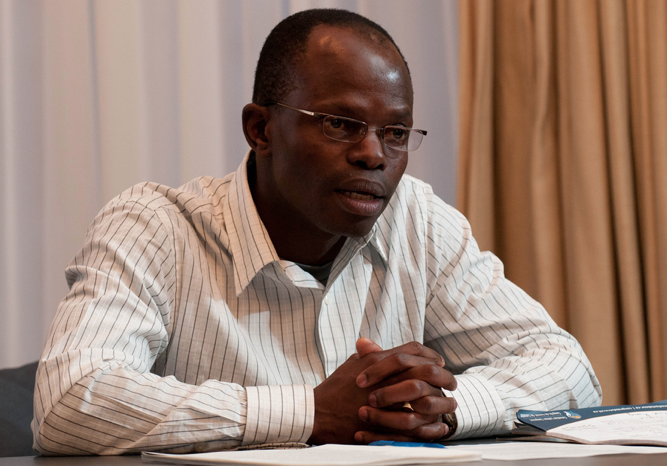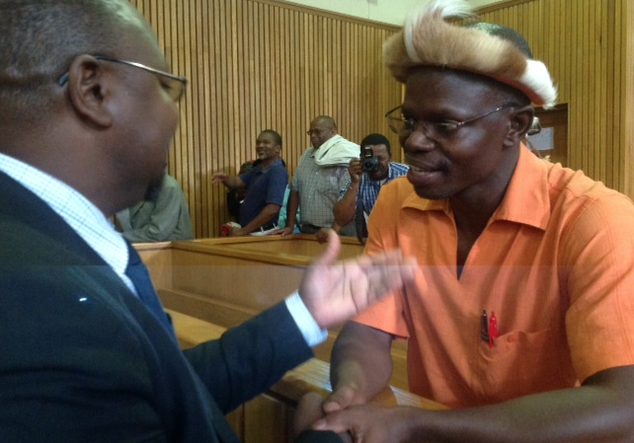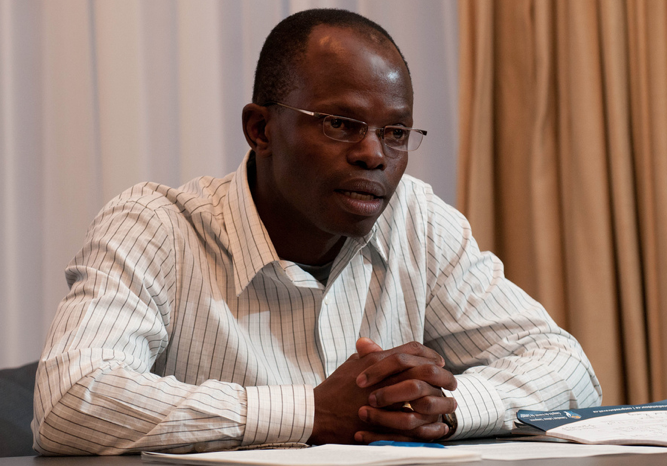
Kyrgyzstan: the ICJ welcomes new investigation into the case against human rights defender Azimzhan Askarov
The ICJ today welcomed the decision of Oktyabrskiy Court of Bishkek to reopen the investigation in the case against Azimzhan Askarov.

The ICJ today welcomed the decision of Oktyabrskiy Court of Bishkek to reopen the investigation in the case against Azimzhan Askarov.

The ICJ is gravely concerned at reports that fresh arrest warrants have been issued for human rights lawyer Thulani Maseko and journalist Bheki Makhubu following efforts by the court to have them remanded in custody.

The ICJ today made a further submission to the UN Working Group on Arbitrary Detention.
The ICJ submission addressed a number of issues for a draft set of “Basic Principles and Guidelines” on the right of anyone deprived of liberty to challenge the lawfulness of his or her detention, and the right of victims of arbitrary or unlawful detention to an effective remedy.
The document supplements an earlier submission by ICJ, delivered in November 2013, and responds to a number of questions raised by members of the Working Group when the ICJ appeared before it in its November session. The new submission addresses the following issues:
The United Nations Working Group on Arbitrary Detention, which will next meet in Geneva 22 April to 1 May 2014, was requested by the Human Rights Council to prepare the draft “Principles and Guidelines” before the end of 2015. The Working Group is presently developing a first draft. A stakeholder consultation on the draft is contemplated for September 2014.
The new supplemental submission may be downloaded in PDF here: ICJ-Advocacy-WGADhabeas-2ndSubmission-03042014
The earlier submission may be downloaded here.

The ICJ consider that yesterday’s order to prolong the detention pending trial of Swazi human rights lawyer, Thulani Rudolf Maseko, and The Nation Magazine editor Bheki Makhubu, for 7 more days, was inconsistent with the right to liberty.
The ICJ sent a team of lawyers to observe yesterday’s court hearing in Mbabane because of concerns that not only was the arrest and detention seemingly arbitrary, but also that the charges for contempt of court may be inconsistent with the enjoyment of the right to freedom of expression.
In the light of its concerns in the case, including with regard to the respect for the rights to a fair hearing before an independent and impartial tribunal, the rights to liberty and the rights to freedom of expression, the ICJ intends to continue to monitor the proceedings against Thulani Rudolf Maseko and Bheki Makhubu, and will send an international observer to the next hearing which is expected to take place on 1 April 2014.
Further information:
swaziland-maseko and makhubu custody hearing-2014 (full press release)
Contact:
Arnold Tsunga, Director, ICJ Africa Regional Programme, Arnold.tsunga(a)icj.org, +27 11 024 8268 or +27 73 131 8411
Martin Okumu-Masiga, Deputy Director, ICJ Africa Regional Programme, martin.okumu-masiaga(a)icj.org, +27 78 234 9125.

The ICJ, in collaboration with other organizations, has dispatched a team of lawyers to attend the bail hearing of prominent lawyer and human rights defender, Thulani Maseko and journalist, Bheki Makhubu on 25 March 2014.
The ICJ is working with the SADC Lawyers Association, the Southern Africa Litigation Centre, the Zimbabwe Lawyers for Human Rights and the Southern Africa Human Rights Defenders Network.
Maseko and Makhubu were jointly charged on 18 March 2014 and remanded to appear on 25 March for a bail hearing.
Their lawyer was not allowed to make submissions when the accused appeared for initial remand, in contravention of regional and international standards guaranteeing the right to be represented by a lawyer in legal proceedings.
The accused were arrested after Chief Justice Ramodibedi issued a warrant for their arrest on charges of criminal contempt of court.
The charges arise from articles allegedly written by Maseko and Makhubu in February and March 2014, in which they questioned circumstances surrounding the arrest of government vehicle inspector, Vincent Gwebu.
The vehicle inspector had been arrested and charged with contempt of court after he had arrested the driver of a High Court Judge.
They questioned the integrity, impartiality and independence of the Swaziland judiciary in the way they handled the Gwebu case.
The legality of the arrest, detention and charges is likely to be challenged at the bail hearing.
The ICJ trial observer team of lawyers will assess the compliance of the trial proceedings with international standards of fair trial, including those of the African Union.
The ICJ has previously expressed initial concern that the arrest and detention appear to be arbitrary, and carried out in retribution for their exercise of their right to freedom of expression.
The ICJ also previously expressed further initial concern that the lawyer for the two was not allowed the legitimate exercise of his professional functions as a lawyer when the two appeared before the Chief Justice for the initial remand.
The team of trial observers consists of the following lawyers: Arnold Tsunga, Director, ICJ Africa Regional Programme; Martin Okumu-Masiga, Deputy Director, ICJ Africa Regional Programme; Andrew Makoni, Board member, Zimbabwe Lawyers for Human Rights; and Emilia Siwingwa, Deputy Director, SADC Lawyers Association.
Contact
For further information contact Arnold Tsunga or Martin Okumu-Masiga on +27 11 024 8268, +27 73 131 8411 or +27 78 234 9125.